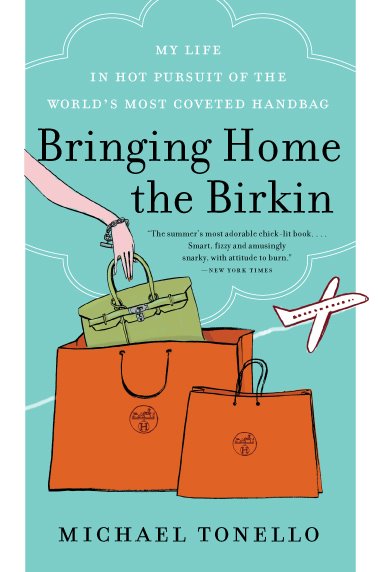The designers behind Lemaire: Christophe Lemaire and Sarah-Linh Tran. They are partners in work and in life.
Credit
Valerio Mezzanotti for The New York Times
------------
PARIS
— Christophe Lemaire, the whispery, whiskery designer of Lemaire, is an
odd avatar of steel-spined grit. He’s a philosophe of fashion, given to
long pauses for thought as he chews over how and why he makes the
clothes he makes. He dresses plainly, in Japanese-denim work shirts
tucked into Japanese-denim jeans. He doesn’t broadcast bravery.
Yet
last fall he stepped away from a marquee job as women’s wear designer
of the global powerhouse Hermès to concentrate on his own, much smaller
brand, Lemaire,
which held its fall show on Wednesday, full of pale-rider tweed capes
and high boots, off-the-shoulder tops and flaring skirts.
“There
was a little bit of anxiety,” Mr. Lemaire said of the decision in his
measured way, as he sat in the back office of his studio on the Rue du
Temple in Paris, the day before his fall 2015 women’s show. “Definitely,
it was a difficult decision to make, because I loved working there. But
it was also a way to challenge us, to say O.K., this is happening with
Lemaire. It’s been a few seasons that it’s growing and growing, the
sales are growing. We get more and more attention. It’s happening now.”
Outside,
models clustered in a hallway and waited their turn to be presented to
the show’s stylist, Camille Bidault-Waddington, while employees churned
around them. But inside the office, seated by a framed photo of David
Bowie at his most aristocratic, Mr. Lemaire betrayed no anxiety, only
calm.
“It
was a recognition when Hermès came to ask me to design for them,” he
said. “It was, of course, a recognition from the system. It’s true that
all of a sudden people started to look at the brand a little bit more
carefully. The shows started to be more crowded. Some people started to
like it. That’s all natural. And personally it gave me confidence and I
think by association, to Sarah-Linh too.”
Sarah-Linh
is Sarah-Linh Tran, Mr. Lemaire’s companion in life and work, and until
recently, the silent and mostly hidden partner behind Lemaire. She is
now its co-creative director. They have been together for eight years,
Mr. Lemaire said, and Ms. Tran has been working on the label for five.
In January, Mr. Lemaire changed the name of the label from Christophe
Lemaire to Lemaire to acknowledge her contributions, and those of his
small studio. “We wanted it to become a family name,” he said.
Lemaire’s
aesthetic reflects the designer’s own unforced elegance. Earlier
collections included more references to esoteric regional wardrobes and
workwear, but recent ones have loosened up and become, as Mr. Lemaire
described his last men’s wear collection, more personal. “We’re all
conditioned to create fantasies,” he said. But “we’re interested in the
quality of everyday life. That’s where culture really is.”
Even
without Hermès, whose new artistic director, Nadège Vanhee-Cybulski,
shows her first collection on Monday, Mr. Lemaire still compels
attention. The show on Wednesday drew an appreciative crowd. The day
before, he announced — with no undue fanfare, just a mass-emailed press
release and very little comment from either company — that he would
collaborate with the Japanese retailer Uniqlo on a collection for men
and women, to debut in the fall.
Uniqlo
is, on the face of it, a full swing of the pendulum away from Hermès,
whose luxury is out of reach to all but the most wealthy consumers. By
contrast, Uniqlo is the home of affordable basics, a rainbow of
under-$100 cashmere sweaters stacked high in its megastores. “Good
design is good design,” Mr. Lemaire said. “There is something we like
about Uniqlo in the generic dimension.”
Generic
is not a selling point for every designer. “We’re not trying hard to be
distinctive. I don’t think we are. …” He paused, then said: “Don’t try
to be subversive. We believe in things, we agree with things in the
fashion system and we don’t agree with some things, we just follow our
own path.”
But
subversion takes many forms. It can be a nearly monastic dedication to
careful, nearly obsessional design. (Mr. Lemaire called the racing speed
of contemporary fashion “the disease of our time.”) It can be the
smaller, independent path less taken.
Or
it can be, lest all this philosophizing sound chilly, more
traditionally subversive, like the molded-leather bags, designed with
the Chilean sculptor Carlos Penafiel, in the gracefully if protuberantly
rounded shape of a woman’s décolletage, nipples included. There is,
perhaps, more to the Lemaire woman than has yet met the eye. “Maybe
there’s a misunderstanding about who we are,” Mr. Lemaire said. “Maybe
we are also responsible for that. The Lemaire is not only an
intellectual, wise Puritan — she could be naked under her coat.”
When someone is holding a bag like that all day long, Ms. Tran added, “it’s quite intriguing.”
http://www.nytimes.com/2015/03/05/fashion/is-there-life-after-hermes-paris-fashion-week-2015.html


No comments:
Post a Comment